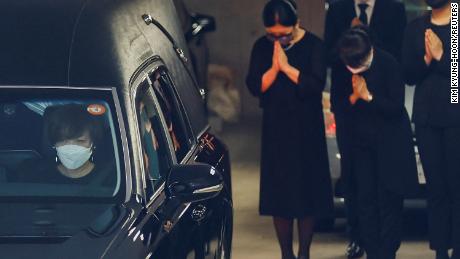Who is Akie Abe? The widow of assassinated Japanese leader Shinzo Abe

But over more than three decades of marriage — including nine years as Japan’s first lady — she proved to be anything but a conventional political wife.In Japan, Akie Abe is best known for her outspoken and progressive views. Unlike her predecessors, she refused to stay in the shadow of her husband. Instead, the socialite carved out a public role for herself in a style more akin to American first ladies.Akie Abe, 60, was widowed on Friday after the former Japanese Prime Minister was fatally shot in broad daylight while delivering a speech in the city of Nara, in an assassination that has shocked and angered the nation.On Friday, she took an hours-long train journey to rush to her husband’s side in a Nara hospital. The next day, she brought his body back home to Tokyo by car. On Monday, she mourned alongside relatives and guests at a private wake at the Zojo-ji Temple. “When (Shinzo) Abe was pining to make his leadership comeback in 2012, it was right at the same time that she was busy preparing to open a restaurant. This was something she had wanted to do for a while and she thought with (Shinzo) Abe out of the premiership for 2007 she finally had this opportunity,” said Harris, the author of “The Iconoclast: Shinzo Abe and the New Japan”.”So she made him promise she would still be able to open her business and she went ahead with it and it was a really nice restaurant.”The izakaya, named “UZU” — meaning whirlpool in English, opened in 2012 in the Kanda district of Tokyo, months before Shinzo Abe started his second stint as Prime Minister.She even grew her own organic rice, in a paddy located in her husband’s home prefecture, and served it at her restaurant.In 2015, she was photographed in a paddy planting rice with then US ambassador to Japan Caroline Kennedy, donning traditional women’s work pants, bare-footed in murky water.In the intervening years before she came back as the first lady, Akie Abe returned to college and obtained a masters degree in social design studies from Rikkyo University.”That was a period of setback and hardship for us as a couple,” she told The Wall Street Journal in 2013. “After a while, he decided to refocus on his political career. I felt like I needed to start my own life.””It goes to show that she really tried — throughout his political career — to still be her own person, to not just be a political wife who would show up and just be expected to do the things that Japan expects political wives to do,” Harris said. “I don’t necessarily think she was ever content, or eager, to play that role.”


